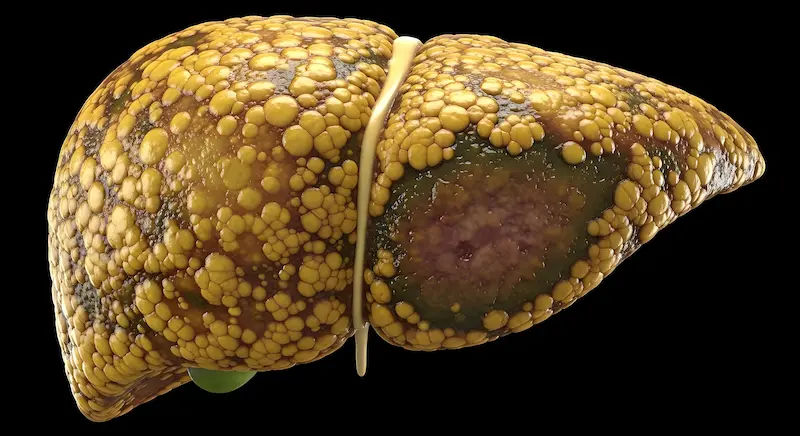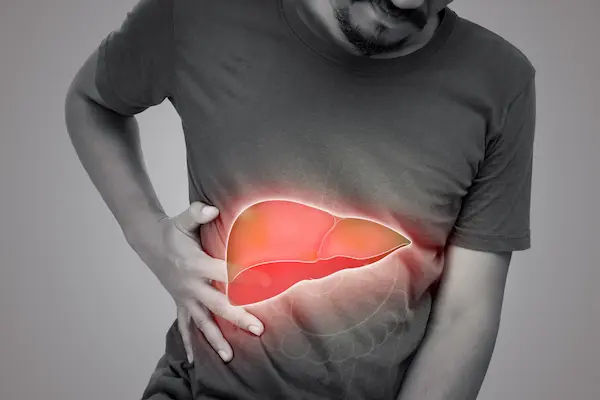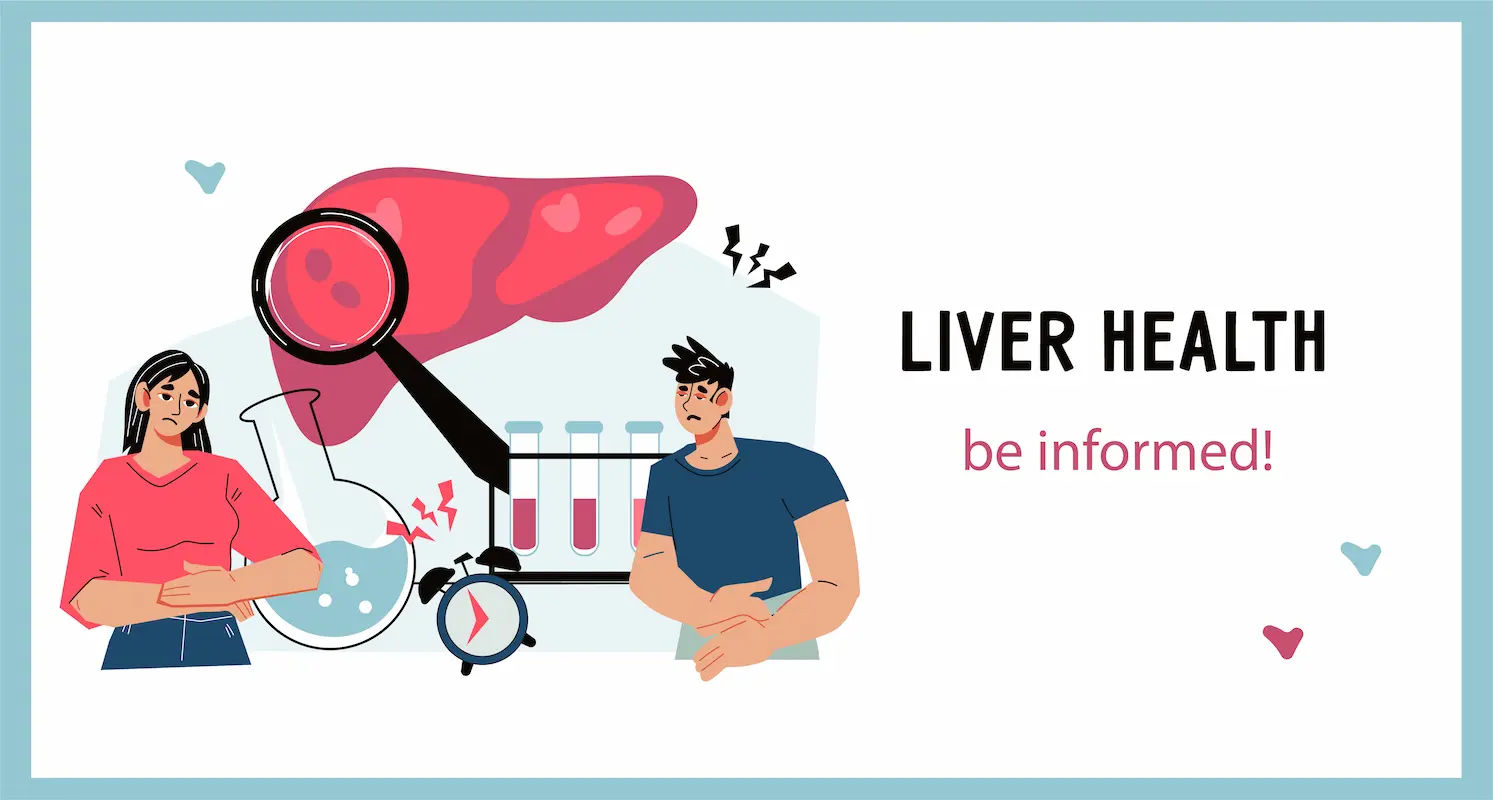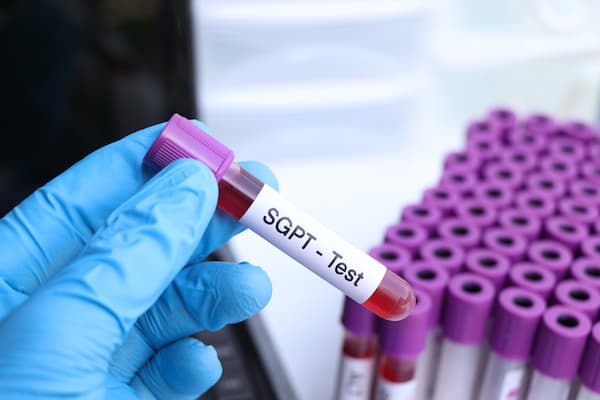Your Action Plan: Effective Tips to Manage Fatty Liver Disease
Learn how to manage and reverse fatty liver disease with proven tips on diet, exercise, weight loss, and lifestyle changes. Take charge of your liver health today.

Written by Dr. M L Ezhilarasan
Reviewed by Dr. Shaik Abdul Kalam MD (Physician)
Last updated on 13th Jan, 2026

Introduction
Receiving a diagnosis of fatty liver disease can be concerning, but it's important to know that for most people, it's a condition that can be managed and often reversed. This disease, characterised by an excess buildup of fat in the liver cells, is increasingly common, largely linked to modern lifestyles. Often presenting with no symptoms initially, it's a silent warning from your body. The good news? You have significant power to influence your liver's health. This article serves as your comprehensive guide, moving beyond basic information to provide a practical, step-by-step action plan. We will delve into the specific dietary shifts that make a difference, the most effective types of exercise, the critical importance of weight management, and the often-overlooked lifestyle factors that support liver healing. Whether you're newly diagnosed or looking to optimise your management strategy, this guide will equip you with the knowledge to take control of your liver health and work towards reversing fatty liver
Understanding Fatty Liver Disease: It's More Than Just Fat
Before diving into management, it's crucial to understand what you're dealing with. Fatty liver disease isn't simply about having a "fatty" organ; it's a spectrum of conditions. At its early stage, excess fat is relatively harmless, but if left unaddressed, it can lead to inflammation, scarring, and serious complications.
The Two Types: NAFLD and NASH
There are two main types of fatty liver disease:
Non-Alcoholic Fatty Liver Disease (NAFLD): This is the most common type, occurring in people who drink little to no alcohol. It's closely associated with metabolic risk factors like obesity, type 2 diabetes, and high cholesterol.
Non-Alcoholic Steatohepatitis (NASH): This is a more aggressive form of NAFLD where the fat accumulation is accompanied by liver inflammation and cell damage. NASH can progress to fibrosis (scarring), cirrhosis, and even liver failure.
Why Managing Fatty Liver is Crucial for Long-Term Health
Think of your liver as your body's primary filtration and metabolic factory. When it's clogged with fat, its ability to process nutrients, filter toxins, and regulate blood sugar is impaired. Proactive management is not just about the liver; it's about reducing your overall risk for cardiovascular disease, stroke, and type 2 diabetes. The goal is to reverse fatty liver naturally by addressing its root causes.
Consult a Hepatologist for the best advice
The Cornerstone of Management: Dietary Changes That Heal
Diet is your most powerful tool in the fight against fatty liver disease. The objective is to reduce the liver's fat load, decrease inflammation, and improve insulin sensitivity.
Foods to Embrace: Your Liver's Best Friends
Focus on a whole-foods, plant-centric diet. The Mediterranean diet is often recommended by hepatologists for its proven benefits for liver health.
Power of Fibre: Whole Grains, Vegetables, and Legumes
Fibre helps regulate blood sugar and promotes a healthy gut microbiome, which indirectly supports the liver. Load up on leafy greens, broccoli, berries, apples, lentils, and oats. These foods are packed with antioxidants that combat oxidative stress in the liver.
Healthy Fats: Avocados, Nuts, and Olive Oil
Contrary to popular belief, not all fats are bad. Replacing saturated and trans fats with unsaturated fats found in walnuts, almonds, olive oil, and fatty fish like salmon can reduce liver fat and inflammation. A study published in the World Journal of Gastroenterology found that omega-3 fatty acids significantly improved liver fat levels and lipid profiles in NAFLD patients.
Foods to Strictly Limit or Avoid
This is non-negotiable for reversing fatty liver disease.
The Sugar and Fructose Danger Zone
Sugary beverages (sodas, juices, sports drinks) and foods high in added sugar are a primary driver of fatty liver. The liver is responsible for metabolising fructose, and excess fructose gets converted directly into liver fat. Eliminating these is one of the fastest ways to start healing your liver.
The Truth About Refined Carbohydrates
White bread, white rice, pasta, and pastries act like sugar in your body. They cause rapid spikes in blood sugar and insulin, promoting fat storage in the liver. Opt for their whole-grain counterparts instead.
The Role of Physical Activity: Move Your Body, Help Your Liver
Exercise is a potent medicine for fatty liver disease. It helps by burning triglycerides for fuel and directly reducing insulin resistance.
Aerobic Exercise: Burning the Excess
Aim for at least 150 minutes of moderate-intensity aerobic exercise per week. Activities like brisk walking, cycling, swimming, or dancing help burn calories and reduce visceral fat—the deep belly fat that is particularly harmful to the liver.
Resistance Training: Building Metabolic Health
Don't underestimate the power of strength training. Building muscle mass improves your body's sensitivity to insulin, meaning your body needs to produce less of it. Less insulin circulating means less instruction for your body to store fat in the liver. Incorporate resistance exercises (like weight lifting, bodyweight exercises, or using resistance bands) at least two days a week.
Weight Management: The Single Most Effective Strategy
For individuals who are overweight or obese, weight loss is the most effective strategy to manage fatty liver disease. The key is not rapid loss, but sustained, gradual loss.
Setting Realistic Goals: Slow and Steady Wins the Race
Research consistently shows that losing just 5-10% of your total body weight can lead to a significant reduction in liver fat, inflammation, and even reversal of early fibrosis. For a 200-pound person, that's only 10-20 pounds. This approach is more sustainable and healthier for the liver than crash dieting. If your condition does not improve after trying these methods, book a physical visit to a doctor with Apollo24|7 to create a personalised weight management plan.
Beyond Diet and Exercise: Other Vital Lifestyle Factors
Holistic health is key. Other factors play a supporting role in your liver's well-being.
Managing Underlying Conditions: Diabetes, Cholesterol, and Hypertension
Fatty liver disease is often part of a larger picture called metabolic syndrome. Effectively managing coexisting conditions like type 2 diabetes, high cholesterol, and high blood pressure with medication and lifestyle is essential. These conditions all share the common thread of insulin resistance.
The Impact of Sleep and Stress on Liver Health
Poor sleep and chronic stress can worsen insulin resistance and promote unhealthy eating habits. Aim for 7-9 hours of quality sleep per night and incorporate stress-reduction techniques like meditation, yoga, or deep-breathing exercises into your routine.
Debunking Common Myths About Fatty Liver Reversal
Myth: "You need expensive detoxes or cleanses."
Truth: Your liver is a natural detoxifier. The best way to support it is through a healthy diet and lifestyle, not extreme juice fasts.
Myth: "Only alcohol causes liver problems."
Truth: NAFLD is caused by metabolic factors, not alcohol. However, if you have NAFLD, you should strictly limit or avoid alcohol as it adds extra stress to the liver.
Myth: "All fruit is bad because of sugar."
Truth: Whole fruits contain fibre, which slows down sugar absorption. The benefits of antioxidants and vitamins in whole fruit far outweigh the concerns about natural fructose for most people with fatty liver disease.
When to Seek Professional Medical Help
While lifestyle changes are powerful, medical supervision is crucial. If symptoms persist beyond two weeks, consult a doctor online with Apollo24|7 for further evaluation. Regular monitoring through blood tests (like liver function tests) and sometimes imaging is necessary to track your progress. Apollo24|7 offers a convenient home collection for tests like liver function panels, HbA1c, and lipid profiles, making it easier to stay on top of your health.
Conclusion
Managing fatty liver disease is a journey of empowerment. By understanding the condition and implementing the strategies outlined in this action plan—prioritising a whole-foods diet, engaging in regular physical activity, achieving a healthy weight, and addressing overall wellness—you can take decisive steps toward healing your liver. Remember, consistency is more important than perfection. Every healthy meal and every bout of exercise contributes to reducing inflammation and fat in your liver, moving you closer to reversal. This journey not only benefits your liver but also enhances your overall metabolic health, reducing your risk for other serious diseases. Start with one or two changes today, and build from there. Your liver has a remarkable ability to regenerate; give it the right tools, and it will thank you for years to come.
Consult a Hepatologist for the best advice
Consult a Hepatologist for the best advice

Dr. E Prabhakar Sastry
General Physician/ Internal Medicine Specialist
40 Years • MD(Internal Medicine)
Manikonda Jagir
Apollo Clinic, Manikonda, Manikonda Jagir
(150+ Patients)

Dr. Akshatha Manjunath
General Surgeon
8 Years • MBBS, MS
Bangalore
Apollo Clinic Bellandur, Bangalore

Dr. Pukhraj Singh Jeji
Gastroenterology/gi Medicine Specialist
13 Years • MBBS, MD ( Internal Medicine ), DM ( Gastroenterology ), Consultant - Gastroenterology
Bhubaneswar
Apollo Hospitals Old Sainik School Road, Bhubaneswar
(100+ Patients)
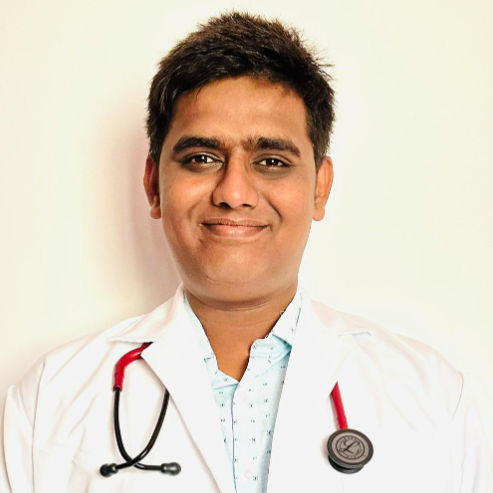
Dr. Sushith C
General Physician
2 Years • MBBS
Bengaluru
PRESTIGE SHANTHINIKETAN - SOCIETY CLINIC, Bengaluru

Dr. Srinivasa Reddy
Hepatologist
12 Years • MBBS, MD (General Medicine), DM (Hepatology),ASGE
Hyderabad
Myra Liver & Gastro Care, Hyderabad
More articles from Fatty Liver
Frequently Asked Questions
1. Can you reverse fatty liver disease completely?
Yes, in its early stages (simple steatosis, without significant inflammation or scarring), fatty liver disease is often completely reversible through sustained lifestyle changes, particularly weight loss.
2. What are the early symptoms of fatty liver?
Often, there are no obvious early symptoms, which is why it's called a silent disease. Some people may experience fatigue or vague discomfort in the upper right abdomen. It's frequently discovered incidentally during blood tests for other reasons.
3. What is the best drink for fatty liver?
Water is the best choice. Coffee (black, without sugar) has also been shown in numerous studies to have protective effects on the liver and may slow the progression of liver disease. Green tea is another excellent antioxidant-rich option.
4. Are eggs bad for a fatty liver?
This is debated. While eggs are a good source of protein, the yolk is high in cholesterol. For most people with NAFLD, consuming eggs in moderation (e.g., 4-6 per week) as part of a balanced diet is likely fine. It's best to discuss this with your doctor or a dietitian.
5. How long does it take to reverse fatty liver with diet and exercise?
There's no fixed timeline, as it depends on the severity of the condition and how consistently you follow a healthy lifestyle. Some studies show significant improvement in liver fat within a few months of consistent effort, with greater reversal seen with 5-10% weight loss.
